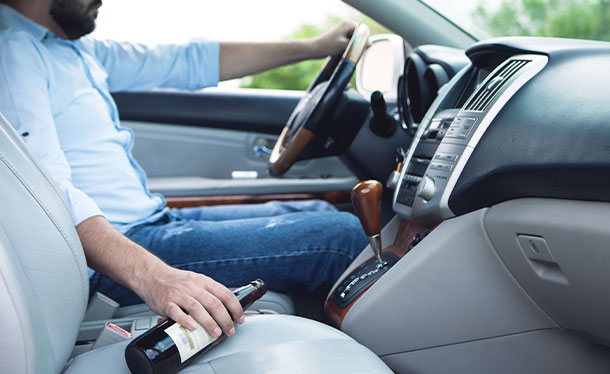Driving while intoxicated or driving while impaired (DWI) in Minnesota has four degrees of severity, with the first degree being the most serious and the fourth being least serious. Though Minnesota considers fourth-degree DWI a misdemeanor offense, it still comes with criminal consequences that can greatly affect the life of a convicted driver.
Here’s what you need to know if you’re facing a fourth-degree DWI charge in Minnesota. Don’t hesitate to contact an experienced defense attorney to ensure your rights are protected as you face this charge.
What counts as 4th-degree DWI in Minnesota?
Fourth-degree DWI in Minnesota occurs when a person is driving while intoxicated but:
- there are no aggravating factors
- it is their first offense ever, or their first offense since their DWI conviction over 10 years ago, AND
- their blood alcohol concentration (BAC) is less than 0.16.
What is the penalty for 4th-degree DWI in Minnesota?
The penalties for a 4th-degree DWI conviction in Minnesota may include:
- Up to 90 days in jail
- Up to a $1,000 fine
- Revocation of driving privileges
- One to two years possible probation
- Community work service
- Required chemical dependency evaluation
- Substance abuse counseling or treatment, if the court finds necessary.
These penalties for fourth-degree DWI are not as heavy as for a felony or gross misdemeanor DWI, but they can have an immense impact on the convicted person’s life. License revocation disrupts the person’s ability to travel, go to work, and carry out their daily routine. The DWI conviction will appear on their permanent criminal record, leading to ripple effects such as increased auto insurance rates.
Further, it doesn’t take a criminal conviction to experience the effects of this offense. License revocation is an administrative sanction, not a criminal penalty. Even when the driver is found Not Guilty of the criminal charge, they would still need to challenge the administrative penalty. If they fail to do so successfully, their driver’s license could still be revoked, and this loss of license could enhance any subsequent DWI charge.
It’s wise for anyone facing a fourth-degree DWI charge to get the help of a defense lawyer. An experienced attorney can negotiate to minimize the sentence, avoid certain penalties, or dismiss the charge entirely in cases that warrant it.
How long do you lose your license on a 4th-degree DWI in Minnesota?
Since fourth-degree DWI is for first-time offenders with a BAC under 0.16, the loss of license can last up to 90 days. Minnesota gives a choice to the convicted driver to either:
- Get 15 days of zero driving privileges, then carry out the remainder of the 90 days with a limited license, OR
- Retain full driving privileges for the 90-day period but with the use of the ignition interlock device, which the driver will pay for.
What to expect at arraignment for 4th-degree DWI in Minnesota
Arraignment refers to your first court appearance, which can also serve as your bail hearing. Here, the judge will explain to you the charges you’re facing, the possible penalties, and your rights. They may also set your bail.
Under Minnesota law, the bail must be an amount that allows you to be released from custody without needing to comply with any court-ordered conditions such as probation, alcohol monitoring, and the like. The maximum bail for a Minnesota misdemeanor DWI is $4,000.
Also, with your attorney, you can request the court to waive your appearance at certain hearings, which means you wouldn’t have to attend certain court dates where your lawyer can represent you.
Contact DWI Attorney Jeff Dean
You can never underestimate the long-term impact of a DWI charge. As soon as you are arrested or charged, contact the highly trusted Minnesota defense lawyer Jeff Dean. In his 26+ years of experience protecting the accused in criminal cases and DWI cases, Mr. Dean has won Not Guilty verdicts, obtained numerous dismissals, and has lowered charges for his clients.
Talk to Jeff Dean about your DUI or DWI charges. Call (612) 805-6916 today.


